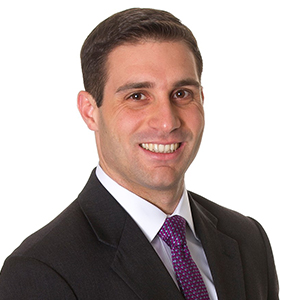 The industry event anyone in secured finance attends now celebrates its 77th year. SFNet is set to make the Arizona convention a memorable one. Click below to register.
The industry event anyone in secured finance attends now celebrates its 77th year. SFNet is set to make the Arizona convention a memorable one. Click below to register.

Blaise Latella
Partner, Winston & Strawn
Blaise Latella is a partner in Winston & Strawn’s finance practice and advises lenders and borrowers on middle market and broadly syndicated domestic and cross-border finance transactions. He represents a wide range of lenders, including banks, providers of private credit, hedge funds, mezzanine funds and SBICs, in connection with acquisition, cash flow and asset-based syndicated and club-financings.
His pro bono work has included securing political asylum for a Cameroonian refugee, working with the Bronx High School of Science Alumni Foundation to revise its governance documents and policies, and advising SunCulture, a non-profit organization that works to provide sustainable clean water through solar-powered filters, on corporate governance matters.
Blaise received his B.A. in English from Princeton University in 2008 and his J.D. cum laude from St. John’s University School of Law in 2012, where he served as Senior Articles Editor of the St. John’s Law Review.
What is the best professional advice you have been given and how have you implemented it?
Work as hard as you expect others to work for you. My team always knows that if I’m asking them to work late or work weekends it’s because I’m doing that as well. The trust that everyone is shouldering their part of the load and that everyone’s time is equally valuable helps build a sense of camaraderie and shared purpose. The moment you expect someone on your team to work when you aren’t is the moment that trust is broken and the team falls apart. I also let my team know when something doesn’t require their immediate attention so that they can take time to themselves without stressing to get something done on an arbitrary or unspoken deadline.
What are some negotiation tactics you’ve learned over the years?
While it’s true that you don’t get anything you don’t ask for, taking the time to separate the “necessary” from the “desirable” and focusing on the ultimate goal of the transaction instead of what you can “get” from the other side almost always yields a more positive and efficient result for all parties involved. Finding out what’s important to the other side is also key because you may be able to give someone what they need without sacrificing anything vital to your client. Ultimately, know what your client must have and work to find a solution without conceding any of it.
With many working remotely or hybrid-styles the past few years, what are some work-life balance strategies you’ve stuck with?
I’ve focused on making time for what’s important to me and not being pressured into abandoning personal-time/work-time boundaries by keeping up with a gym routine and at least trying to avoid responding to e-mails the moment I wake up on days when I work from home. Taking some time to make a nice cup of coffee, read the news, shower and get dressed in professional clothes in the morning and taking a gym break from work in the evening on days when I work from home, just as I would on days when I commute to the office, has made me more disciplined in how I approach the day and helped me maintain some necessary mental separation between work and home, even when the physical space is the same.
When interviewing newcomers to the industry, what do you say to pique their interest about why they should accept a position in this industry?
I try to help anyone new to the industry understand the real-world impact of what we do. Saying you do “secured finance transactions” sounds stodgy and monotonous. Explaining how you worked with a company to restructure their credit facilities in order to keep the company out of bankruptcy or to provide a DIP and exit facility for the business, thereby saving 500 jobs, lends a whole new perspective to how important this job and industry can be.
77th Annual Convention
 The industry event anyone in secured finance attends now celebrates its 77th year. SFNet is set to make the Arizona convention a memorable one. Click below to register.
The industry event anyone in secured finance attends now celebrates its 77th year. SFNet is set to make the Arizona convention a memorable one. Click below to register.
